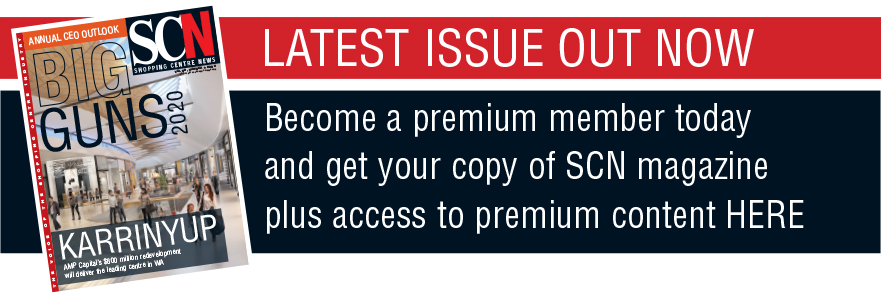Victoria has just introduced a Bill that could establish a ‘commencement date’ in a retail lease, in a centre that hasn’t yet been built! Sounds a bit looney doesn’t it?
But as Speirs points out; ‘the lunatics have taken over the asylum’…
The Victorian Retail Leases Bill 2019 is clear evidence that the lunatics are now in charge of the asylum.
It was tabled in 2019, at a time when bricks-and-mortar retail was facing choppy water. Since then, the headwinds have only strengthened. Jeanswest and Colette have collapsed, and Kaufland has elected to burn half a billion dollars rather than persevere in Australia.
The Victorians appear to have forgotten that bricks-and-mortar retail is a bit of an engine. According to the ABS it employed approximately 360,000 Victorians in 2017.
So you would expect government to take the vitality of the industry pretty seriously. But clearly not in Victoria.
Look at what they want to do with disclosure statements.
At present, a disclosure statement is to be issued at least 7 days before a lease can be entered into. Now, the Victorians want to extend this out to 14 days.
The reason for this change, according to the Bill’s Explanatory Memorandum is that it “provides tenants with more time… to consider the disclosure statement… before entering into the lease.”
I mean, do the people behind this Bill even understand how a retail lease works? The amendment appears to be driven by a belief that a lease must be entered into after 7 days. The authors of the Bill do not appear to understand the difference between a right and an obligation.
Out here in the trenches, we all understand that it is not compulsory for the tenant to enter into the lease at the end of the 7 days. A tenant can take as long as it likes. If the tenant wants more time, he takes it. So the 14 days does not give the tenant anything more than it has already got.
Out here in the trenches, we also have experience of the 7 days getting in the road. Tenants who know what they are doing can’t get started, merely because of the legislation. That is why there is no 7 day block-out in South Australia: the requirement is merely “before”.
One example. In the wake of the recent hail storm in Canberra, we acted on a lease for a panel-beater who had a revolutionary technique for repairing hail-damaged car panels. We concluded a lease deal in one day, so that the tenant was up and running in the critical period immediately after the storm, competing for business.
In Victoria, under this Bill, the tenant would not have got out of bed. The 14 day siesta would have killed the commerce.
(In case you are worrying about how we overcame the 7 day disclosure obligation in the ACT, it was only because the area of the premises exceeded the jurisdictional limit. The Victorians don’t have an area limit).
If you wanted to usefully reform the disclosure statement protocol you might actually think about the process and how it plays in practice.
When you buy a house in NSW you have a statutory cooling off entitlement. The cooling off period can be waived if a solicitor certifies that the effect of the contract has been explained, and that the right to cool off is lost.
Why is it not possible to adopt a similar approach to the retail lease? That is, you cannot enter into a lease until the 7 days have ticked over, unless you produce a waiver certificate?
But why would you want to facilitate the industry when it is more fun to bugger it around?
If the conceptual framework of the Bill is flawed, the technical drafting is equally muddled.
It is now proposed that if the landlord gives a disclosure statement to the tenant less than 14 days before the lease is to be entered into, the term of the lease is taken to commence 14 days after the disclosure statement is given.
Someone here has failed to grasp the fundamental distinction between when a lease is entered into, and when the term of a lease begins. This makes me even more concerned that the person flying the plane might not be a pilot.
Section 3 of the Act defines a lease to include an agreement to lease. An agreement to lease is “entered into” when it is signed (section 7). And obviously, an agreement to lease can relate to a shopping centre that has not yet been built.
The Bill would operate so that if a disclosure statement was not given at least 14 days before the agreement to lease was signed, the term of the lease will begin 14 days after the disclosure statement is given. Therefore, if a landlord gives the disclosure statement 7 days before the agreement to lease is signed, the term of the lease will commence 14 days later, even though the shopping centre is not yet built!
In other words, we have legislation designed to give tenants more time, drafted so ineptly that it takes time away.
The Bill also requires landlords to provide more pointless disclosure detail. In addition to the disclosure statement, the landlord has always been required to provide a copy of the proposed lease. Now, the proposed lease must include particulars of the tenant, the rent and the term, at least 14 days before the lease is entered into.
Why? What is the need that drives this additional burden?
These details will be apparent from the disclosure statement itself. And if the tenant subsequently decides to use a company to take the lease, then presumably a new lease will have to be issued with the updated particulars and another 14 days will disappear. What earthly benefit does the tenant derive from having its own name recorded in the draft lease? The purpose of providing the lease is to enable the tenant to consider the landlord’s terms and conditions. Those terms and conditions will be the same, whether or not the tenant’s name is uploaded.
All this nonsense does is impose more procedural voodoo without securing any practical benefit to tenants.
On a renewal, it is now proposed that the landlord must provide not only a disclosure statement, but also details of any changes from the previous disclosure statement.
This is just what the industry needs right now: another useless form to fill out.
Again, why does the landlord have to dance this extra jig?
If the tenant can read, it will know the costs of the renewal lease from the disclosure statement. Presumably, all of the financial content will have changed from the original disclosure statement but if the tenant does not understand this, no amount of disclosure will assist.
The bright sparks flying the plane have also decided to regulate the way in which options to renew can be granted.
Options to renew were once common features of Australian retail leases. But that was before NSW introduced the Retail Leases Act in 1994. That Act contained regulation similar to what is now proposed in Victoria.
The response by landlords was to simply stop granting options. They are now on the endangered species list. If the Victorian Bill is enacted, it will likely render options all but extinct in that state, certainly if the option contains a market rent review.
The Bill gives tenants the same right as NSW to a market rent determination before electing to exercise the option. It then goes further than NSW by giving to tenants a right to cool off, if they exercise their option without first invoking that entitlement.
So the Bill throws the baby out with the bath water. It is well-intentioned but misconceived. As we all know, the road to hell is paved with good intentions.
This Bill is stupidity writ large. If you are going to reform the Act, do something worthwhile or do nothing.
Abolish the minimum 5 year term (like NSW and Queensland). Do something brave, like abolishing the disclosure statement full stop. Do something that might actually help. But don’t layer on more inept and pointless regulation.
Let the industry breathe. Right now, it could do with the oxygen.





















